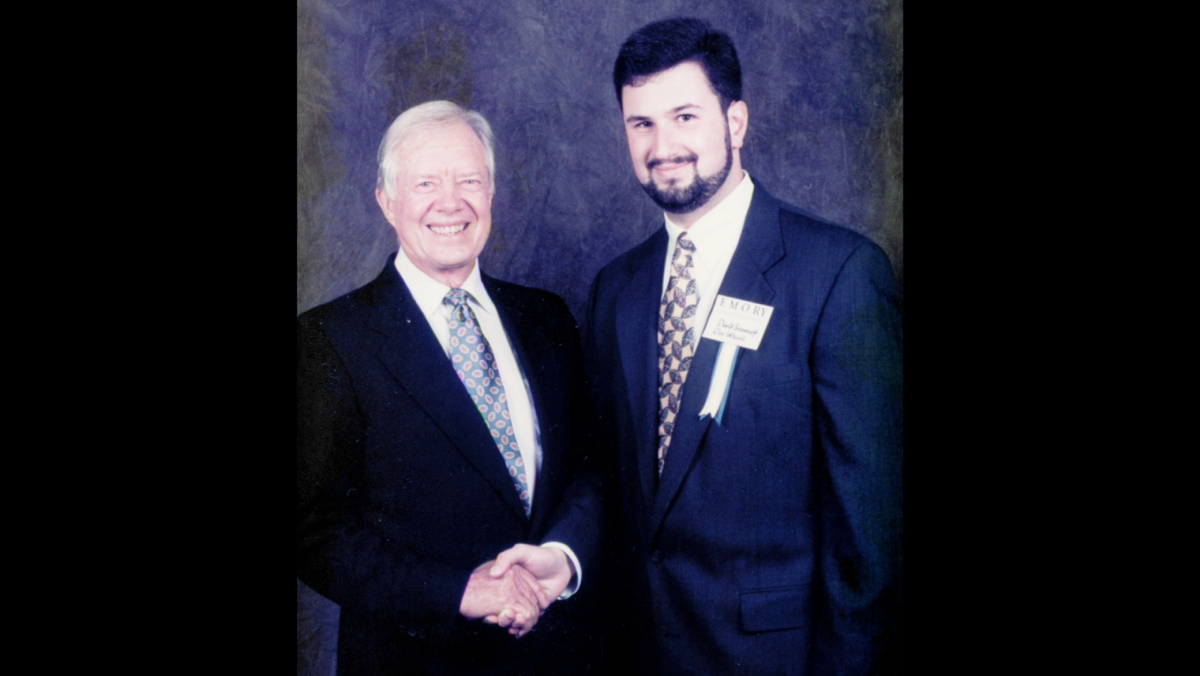Jimmy Carter turns 100 years old today. I once had dinner with him. It’s a cool story. Here goes:
I was a senior at Emory, and the university invited about 50 student leaders to have dinner with the President before he spoke at a campus-wide event. Somehow, I made the invite list.1
The dinner was held at Harris Hall, a women’s dorm with a big meeting room facing busy Clifton Road. I arrived, signed in, clipped a name tag to my lapel, and participated in the usual small talk. President Carter arrived a while later. The chatter stopped and everyone turned to look at him. I think it was probably because a world leader and leading humanitarian had just entered the room but, in hindsight, we may have just been stunned to see he had forgotten to pick up his name tag.

After President Carter arrived, we trickled from the reception area to a massive rectangular dining table. It took me a while to find my place card, and that’s because I wasn’t looking in the right place. I didn’t expect to be seated at the head of the table, with just one chair between me and the President.
Whoa.
I don’t remember much about the person who sat between us, except that she wasn’t a student — I think she was associated with the Carter Center. What I do remember is that she didn’t speak much. That meant that I got to talk to the President quite a bit, as long as he was facing to his left.
The first thing I ever said to the President?
“Can you pass the salt?”
I’m not making that up. It is a real thing that happened.
With seasoning out of the way, I asked the President about his most recent book (“Turning Point,” about his first political campaign). I can’t remember his response, but I followed up by asking how he took the time to write.
His response (which I don’t remember well enough to quote) was that he made time to write because it was important enough. Over the years, I’ve distilled what he said down to this: Be passionate about writing and disciplined about scheduling.
We talked about other topics, but the conversation would always circle back to writing. At one point, I asked him how he approached poetry versus prose (“Always a Reckoning, and Other Poems” would be published the following year).
His exact words elude me again, but my takeaway was that Carter thought of himself as a writer. Not a former President who writes. It didn’t matter if what he wrote, or if it was for himself or posterity — all writing has value.
Again, whoa.
Carter seemed to enjoy the conversation. I suspect he gets asked about the same things repeatedly, and it felt like he appreciated talking about something important yet unrelated to politics.
All of this happened long ago, and there’s a good chance I’m misremembering or misrepresenting what happened.2 Stories, like storytellers, tend to evolve with age. I don’t know what, if anything, President Carter remembers from our discussion — not because of his age, but because he’s had 100 years of extraordinary encounters and experiences, so why would this one stick out?
But, who knows?
Happy birthday, President.
